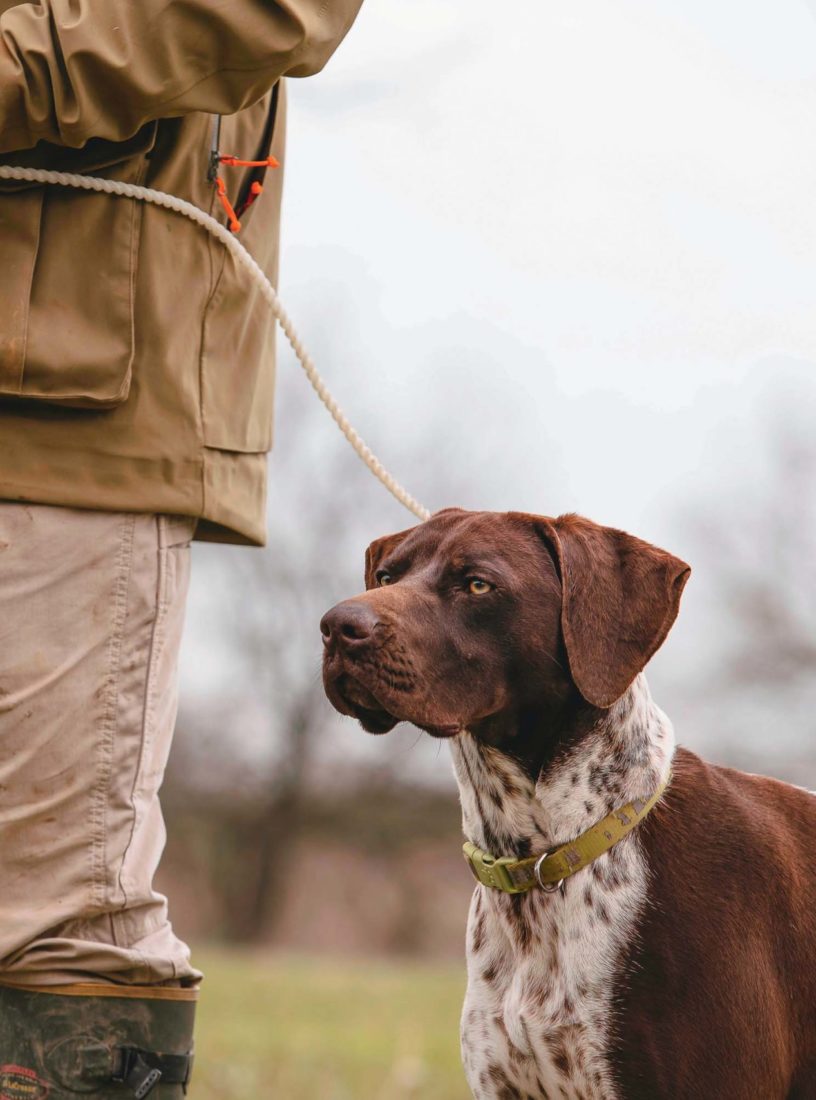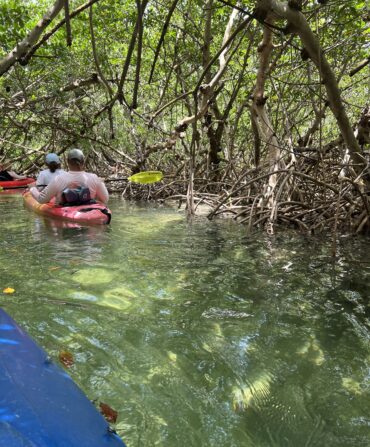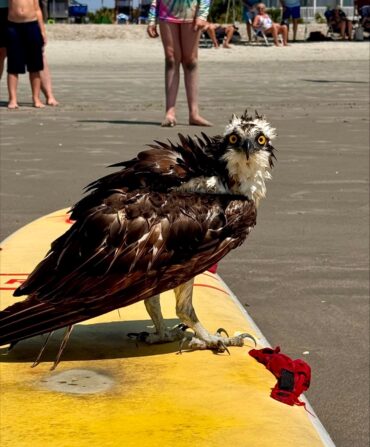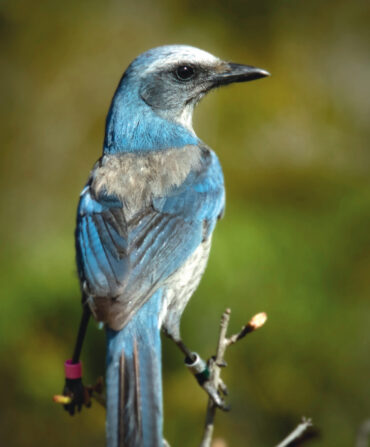Whether you’re an armchair adventurer who’s long dreamed of casting a tight loop into a mountain stream or a lifelong wing shooter looking to fix a bad habit, there’s an expert who’s ready to help. Study under one of the world’s finest bamboo-fly-rod makers, a falconer who can perch a peregrine on your hand, and instructors eager to teach you how to cast through the wind to hook a bonefish on the flats or even get you playing polo with the pros. Whatever your interest, these schools in the South and beyond offer fresh thrills and a chance to refine skills in gorgeous classrooms built by Mother Nature.
Shooting
Pursell Farms
Sylacauga, AL
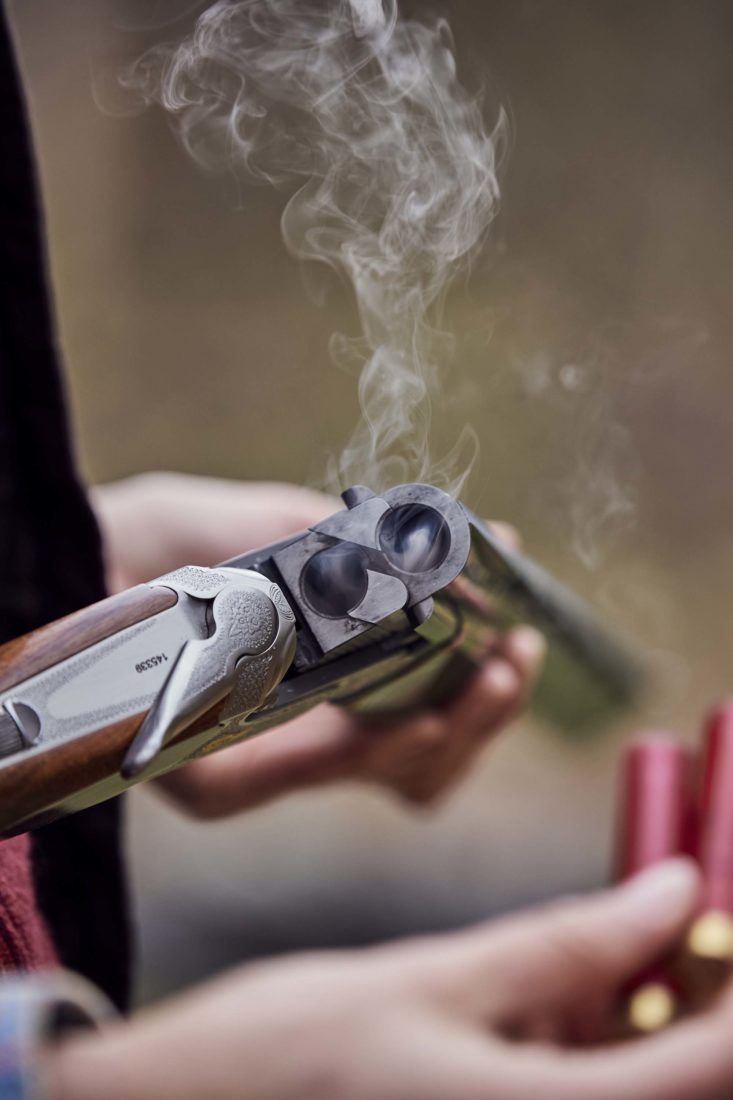
Home to one of only three Orvis shooting schools in the country—and the only one in the South—Alabama’s Pursell Farms boasts a twenty-acre, fifteen-stand sporting clays course nestled within a majestic thirty-two-hundred-acre spread of rolling hills, oak and pine forests, and native grasses at the base of Chalybeate Mountain. Pursell’s diverse terrain allows for a variety of simulated wing-shooting situations, both in the open field and within the hardwood canopy, and one- and two-day shooting schools lavish ample individual attention on students. Shooting instructor Chuck Baker relies primarily on the Churchill Method, an instinctive shooting technique based on economy of movement. “We teach beginning shooters how to avoid bad habits, and advanced shooters how to get rid of them,” Baker says. After lessons, guests can spend an afternoon fly fishing on Lake Christine before retiring for drinks and dinner at Pursell Farms’ newly opened inn, where leather armchairs around the fireplace beckon.
Rod-making
Oyster Fine Bamboo Fly Rods
Blue Ridge, GA
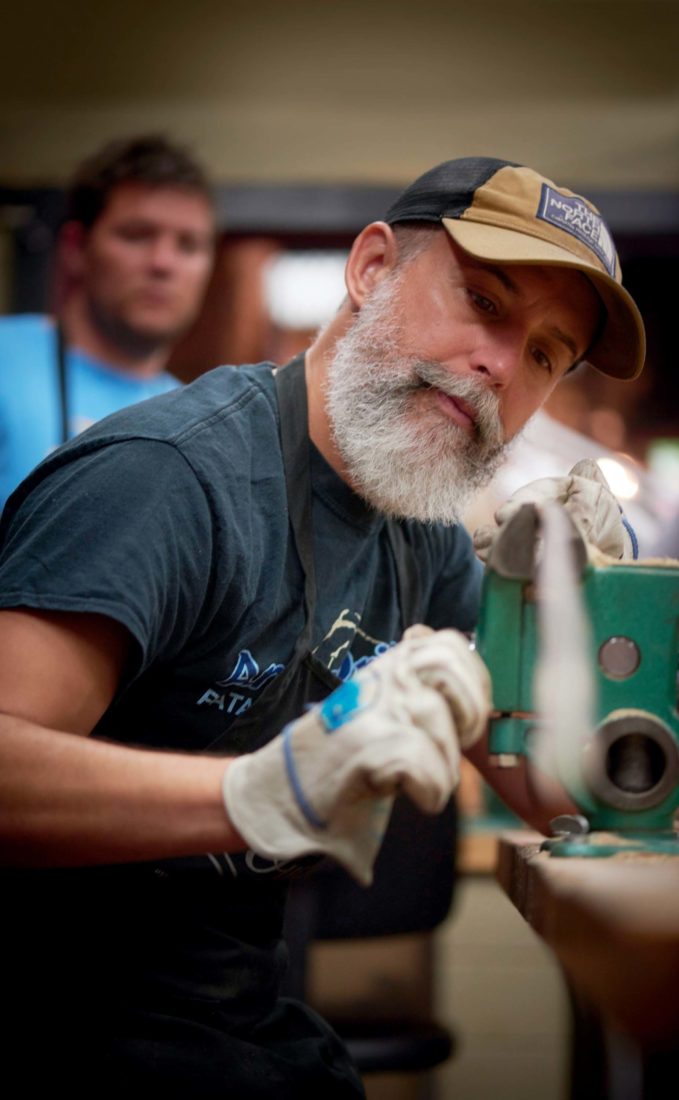
On the final night of Bill Oyster’s weeklong bamboo-fly-rod-making classes, he hosts a celebratory dinner. Rods have been completed, beers are consumed, “and not once, not once, have we ever had a dinner where a grown man hasn’t cried,” Oyster says. “It’s ’cause they don’t want to go home!” Easy to see why. The charms of tiny Blue Ridge, Georgia, where Oyster lives and teaches, include bountiful mountain-town magic and world-class trout fishing on the Toccoa River, which is just waiting to test your new rod once it’s done. Even more beguiling, though, is Oyster himself. One of the world’s most celebrated rod makers (only about forty Oyster originals are produced yearly, ending up in the hands of former presidents and deep-pocketed enthusiasts), he exudes expertise, charm, and enthusiasm to spare. Steering students through the intricate steps of crafting a bamboo fly-fishing rod from start to finish, Oyster makes one week of hard work feel like the adventure of a lifetime.
Falconry
Biltmore
Asheville, NC
It’s not hard to find Jeff Curtis in the lobby of the Inn on Biltmore Estate. “I’m the guy with a peregrine falcon on my hand,” he says. Along with two Harris’s hawks and a barn owl, Curtis leads small groups out onto the grounds of the estate, reveling in the chance to introduce the six-thousand-year-old art of falconry to the curious. Although becoming a licensed falconer requires a deep dive into layers of regulation and training, Curtis’s lessons offer novices a ninety-minute opportunity to learn how to properly and safely handle birds of prey and then fly them out across a field, through the woods, and back to their own gloved hands. “When you see an eleven-year-old with this hawk with a three-and-a-half-foot wingspan coming to land on her hand,” Curtis says, “the look on her face is just priceless.”
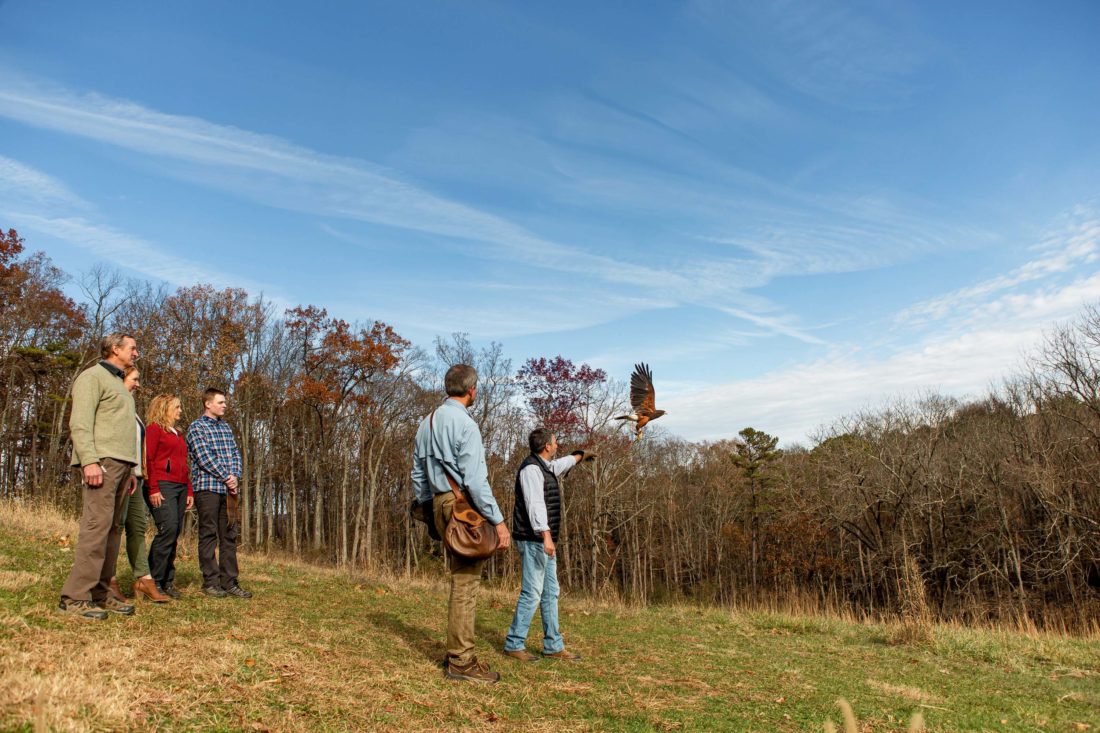
Saltwater Fly Fishing
Blackfly Lodge
Abaco Islands, Bahamas
Saltwater fly fishing has long been considered the domain of the grizzled old man with a beard, but in recent years especially, more and more women have been proving they’re every bit as capable of placing a fly in front of a bonefish’s nose at fifty feet. One of the first lodges to create a high-end custom saltwater fly-fishing school just for women, Blackfly Lodge hosts at least two all-female schools each year. Surrounded by some of the world’s best blue-water and flats fishing, Blackfly is tucked into Schooner Bay (mostly spared by Hurricane Dorian) on Great Abaco. Anchored by a charming eight-room house with a wraparound veranda, the operation is staffed largely by women—from partners to managers to celebrated guide-instructors, including staff member Dana Lowe and North Carolina’s Sarah Gardner. “The women are running the place,” says founding partner Jean Cochran, laughing. “It’s a welcoming space to learn and feel comfortable.”
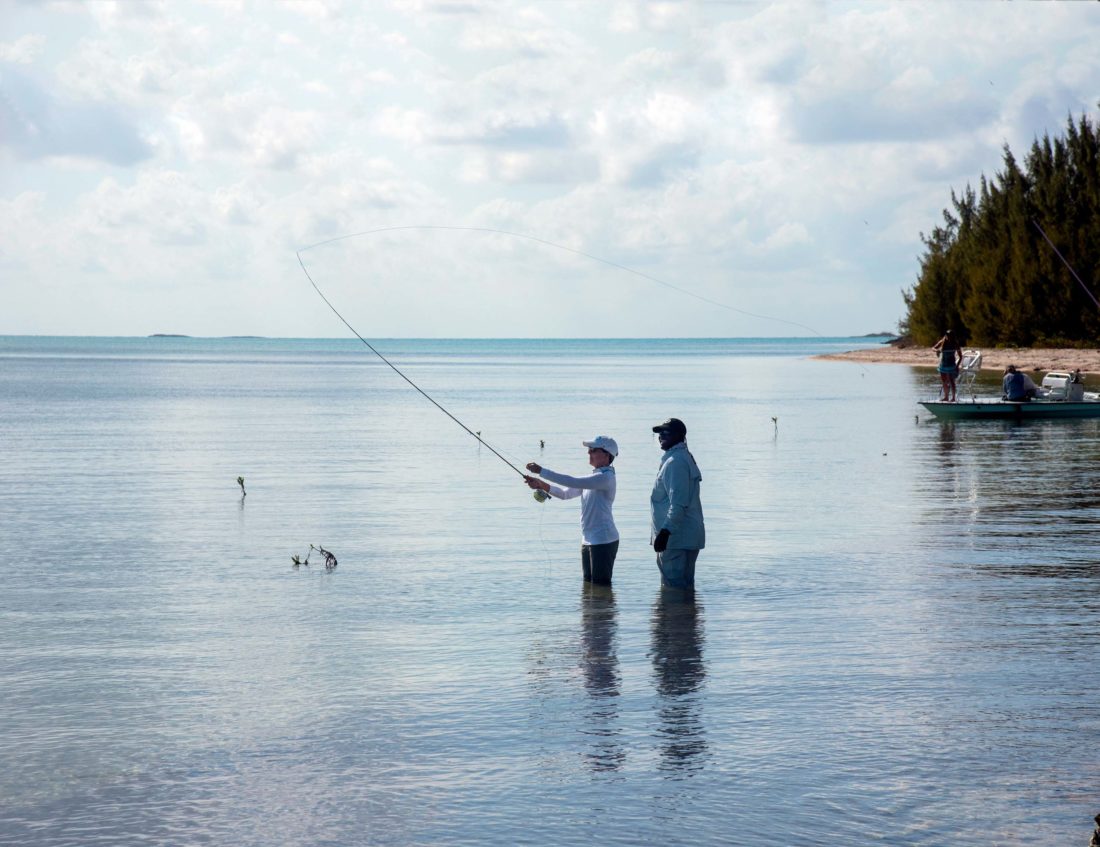
Dog Training
Ronnie Smith Kennels
Pawhuska, OK
Ronnie Smith and his wife, Susanna Love, are only the latest generation of one of the nation’s most celebrated families in bird dog training. Ronnie’s father founded Ronnie Smith Kennels in 1956, and the family has been teaching its time-tested silent command system, using physical points of contact, to dogs and their owners nationwide ever since. Smith and Love hold regular on-site classes at their Oklahoma ranch, offer a long-term apprenticeship program for aspiring professionals, and keep an extensive schedule of traveling seminars (including stops in Mississippi, Virginia, and Florida in 2020). They work with all types of pointing and flushing dogs, basing their training on helping owners gain insight into the dog’s mind. “The key is to observe closely the nuance of what the dog is doing and why,” Love says. “You’ve got to handle a dog the way a dog would, not the way a person would.”
Trout Fishing
Primland
Meadows of Dan, VA
Kevin Merritt can barely stand it. “Oh my goodness!” he says, almost shouting. “You have got to see it!” It’s the Dan River that’s got him so worked up. As one of four Orvis fishing guides stationed at Primland—a Blue Ridge mountain resort built on twelve thousand acres, including a six-mile stretch of the Dan—he’s been fishing its waters for years. Twice a year, special fly-fishing weekends give anglers the chance to learn fly tying, presentation, and techniques for casting under a tight canopy, then hit the rugged special-regulation stretch of the river, where Merritt helps students hook wild brook, rainbow, and brown trout. “The fish look like paintings,” Merritt says. “They look fake, they’re so beautiful.” Dotted with tree-house cabins perched over magnificent views, Primland is also a wing-shooting preserve, offering a variety of upland hunting and European-style driven pheasant shoots, as well as archery, horseback riding, and even an observatory from which to admire the heavens. To Merritt, though, heaven might just be running through the property itself.
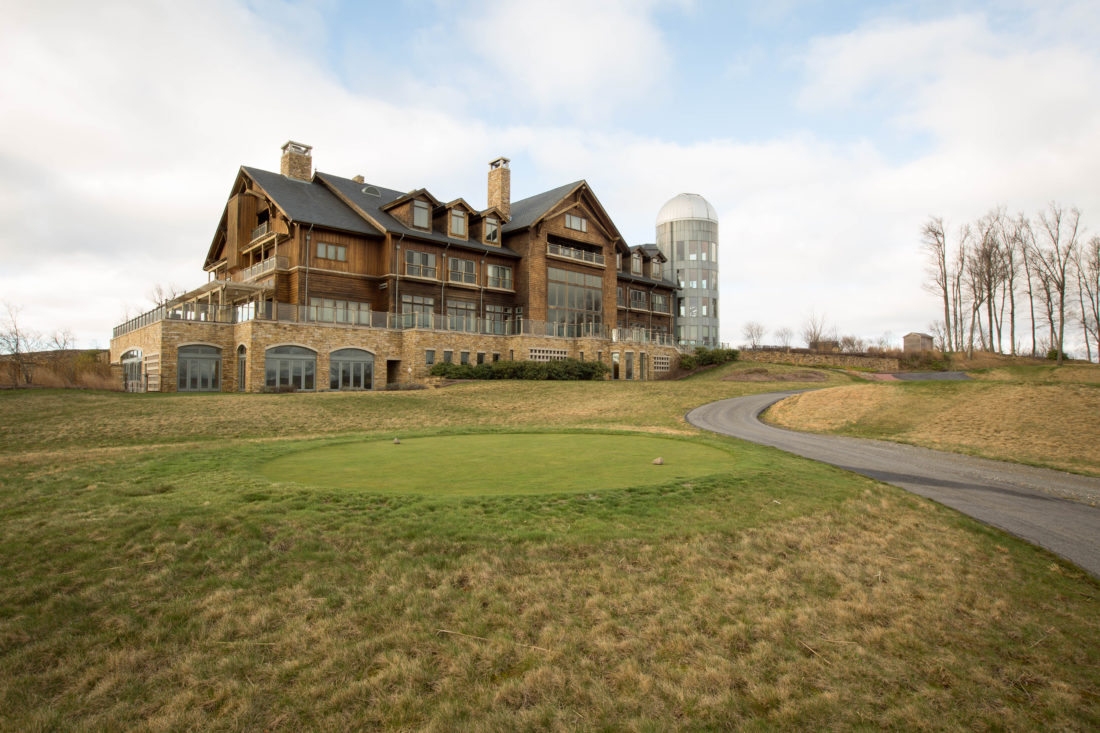
Polo
Palm City Polo Club
Boynton Beach, FL
Few pastimes might seem as difficult to learn as the sport of kings. But at Palm City Polo Club, Joey Casey makes it feel just the opposite. “Come on out and give it a try!” he says, as if it’s as easy as kicking a ball. “I have students of all ages, all levels—you don’t even need to know how to ride.” Casey’s picturesque thirty-five-acre facility features two regulation grass polo fields, sixty stalls, fourteen paddocks, and a custom-built hitting cage, where he can teach you to swing a mallet from a wooden horse before getting you into the saddle. His father, Joe Casey, was one of the greatest horsemen in the history of the sport, and Joey himself is being inducted into the Polo Hall of Fame in February. Still, he loves spending time with beginners. “I built this place to continue the spirit of polo,” he says.
British-style Shooting
West London Shooting School
England
Chances are you’re unaccustomed to wearing tweed while shooting from a dry-stacked stone grouse butt at birds seventy yards out while people with British accents walk around, flushing the growth beneath. “It’s just a different shooting experience,” says Mark Heath of the British Isles’ celebrated driven grouse shoots. Learn the fundamentals of the tradition at the 1901-founded West London Shooting School, the oldest and most prestigious school of its kind in England. Heath and other accomplished instructors teach proper British style, basing their instruction on the legacy of Percy Stanbury, the late chief instructor, who emphasized keeping your weight forward, “on the front toes,” Heath says. With five grouse butts, some of the highest driven targets in the world, 140 trap machines, and 150 acres of Downton Abbey–esque grounds, the school provides an experience that can’t be matched.
Read More: Get pro tips from expert Sportsmen.


